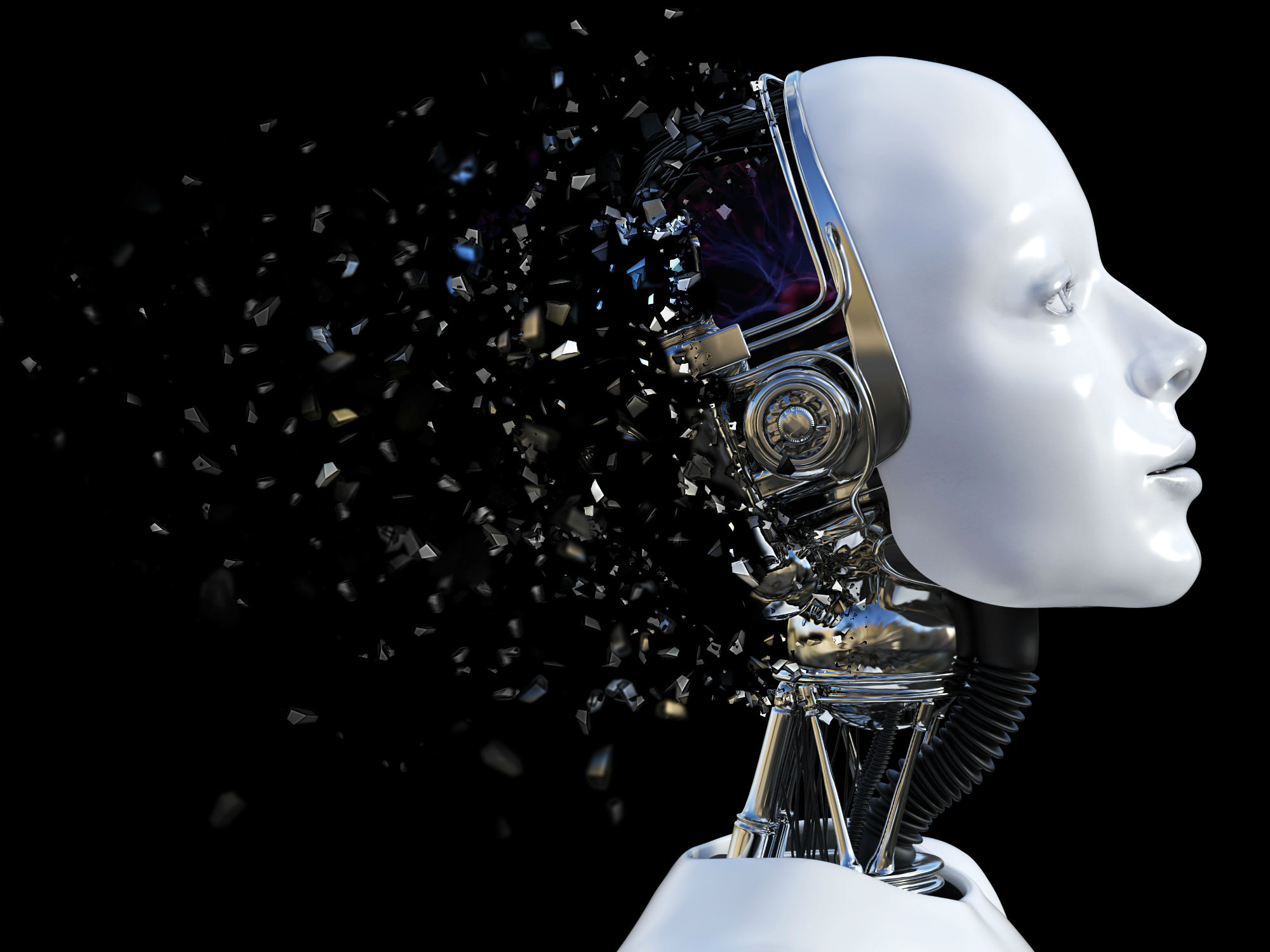In his latest novel “Origin,” Dan Brown hints at how artificial intelligence — and AI robots — could become avatars for real people. Symbologist Robert Langdon finds himself embroiled in an adventure pitting science against religion, but he has the help of a sophisticated AI named Winston.
copyright by now.northropgrumman.com
 This software represents slain futurist Edmond Kirsch and comes across as a combination of Apple’s Siri and Jarvis from the “Iron Man” franchise; it’s also able to adapt human traits with remarkable accuracy.
This software represents slain futurist Edmond Kirsch and comes across as a combination of Apple’s Siri and Jarvis from the “Iron Man” franchise; it’s also able to adapt human traits with remarkable accuracy.
In that respect, this piece of science fiction isn’t too far ahead of science fact. The past 10 years have seen a renaissance in AI research and development as the power of computer processors and sensors has increased while cost has gone down. Smart, useful virtual assistants like Siri are now in the pocket of everyone who owns a smartphone.
Rise of the Androids
Sophisticated, humanlike robots are now serving as platforms for the latest AI tech, which couples natural-language processing skills with machine learning and the vast information resources available online. Some of the most lifelike have been developed in East Asia. Japan has produced a range of startling androids, such as the Geminoid series developed by Osaka University researcher Hiroshi Ishiguro. Hong Kong-based Hanson Robotics , however, has stirred controversy since the 2016 debut of Sophia, a female android that has been shown off at numerous high-profile meetings and interviews, drawing global interest.
With her exposed cranial circuitry and knack for eyebrow-raising statements, Sophia is slightly unnerving in appearance and performance. She has cameras in her eyes, the ability to mimic human facial expressions and carry on a conversation. She was recently outfitted with a humanoid robot body, giving her rudimentary walking skills. Company founder and CEO David Hanson said in an interview with The Telegraph that locomotion can give machines the ability to “understand what it means to feel human … to feel with us. That’s really important for artificial intelligence, I think, to be safe in the future.”
Whether or not robots can ever “feel” is one question, but Hanson envisages a time when robots could be indistinguishable from humans. While many robotics observers doubt that will ever happen — even questioning the degree to which Sophia’s answers are scripted — the robot was awarded Saudi Arabian citizenship last year, said Forbes; she was also named an “Innovation Champion” by the United Nations Development Programme. […]
read more – copyright by now.northropgrumman.com


In his latest novel “Origin,” Dan Brown hints at how artificial intelligence — and AI robots — could become avatars for real people. Symbologist Robert Langdon finds himself embroiled in an adventure pitting science against religion, but he has the help of a sophisticated AI named Winston.
copyright by now.northropgrumman.com
In that respect, this piece of science fiction isn’t too far ahead of science fact. The past 10 years have seen a renaissance in AI research and development as the power of computer processors and sensors has increased while cost has gone down. Smart, useful virtual assistants like Siri are now in the pocket of everyone who owns a smartphone.
Rise of the Androids
Sophisticated, humanlike robots are now serving as platforms for the latest AI tech, which couples natural-language processing skills with machine learning and the vast information resources available online. Some of the most lifelike have been developed in East Asia. Japan has produced a range of startling androids, such as the Geminoid series developed by Osaka University researcher Hiroshi Ishiguro. Hong Kong-based Hanson Robotics , however, has stirred controversy since the 2016 debut of Sophia, a female android that has been shown off at numerous high-profile meetings and interviews, drawing global interest.
With her exposed cranial circuitry and knack for eyebrow-raising statements, Sophia is slightly unnerving in appearance and performance. She has cameras in her eyes, the ability to mimic human facial expressions and carry on a conversation. She was recently outfitted with a humanoid robot body, giving her rudimentary walking skills. Company founder and CEO David Hanson said in an interview with The Telegraph that locomotion can give machines the ability to “understand what it means to feel human … to feel with us. That’s really important for artificial intelligence, I think, to be safe in the future.”
Whether or not robots can ever “feel” is one question, but Hanson envisages a time when robots could be indistinguishable from humans. While many robotics observers doubt that will ever happen — even questioning the degree to which Sophia’s answers are scripted — the robot was awarded Saudi Arabian citizenship last year, said Forbes; she was also named an “Innovation Champion” by the United Nations Development Programme. […]
read more – copyright by now.northropgrumman.com
Share this: